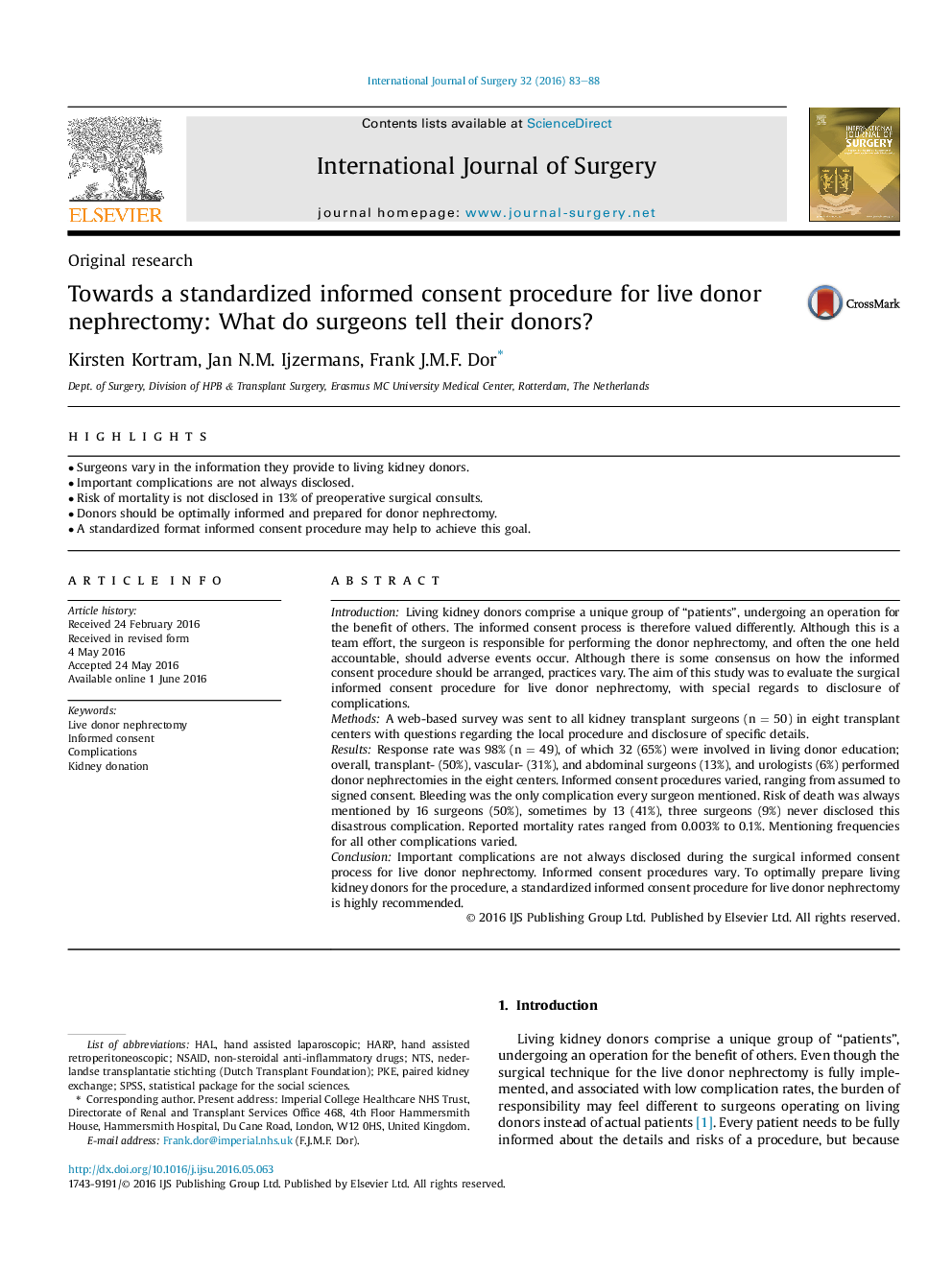| کد مقاله | کد نشریه | سال انتشار | مقاله انگلیسی | نسخه تمام متن |
|---|---|---|---|---|
| 6250858 | 1611955 | 2016 | 6 صفحه PDF | دانلود رایگان |
- Surgeons vary in the information they provide to living kidney donors.
- Important complications are not always disclosed.
- Risk of mortality is not disclosed in 13% of preoperative surgical consults.
- Donors should be optimally informed and prepared for donor nephrectomy.
- A standardized format informed consent procedure may help to achieve this goal.
IntroductionLiving kidney donors comprise a unique group of “patients”, undergoing an operation for the benefit of others. The informed consent process is therefore valued differently. Although this is a team effort, the surgeon is responsible for performing the donor nephrectomy, and often the one held accountable, should adverse events occur. Although there is some consensus on how the informed consent procedure should be arranged, practices vary. The aim of this study was to evaluate the surgical informed consent procedure for live donor nephrectomy, with special regards to disclosure of complications.MethodsA web-based survey was sent to all kidney transplant surgeons (n = 50) in eight transplant centers with questions regarding the local procedure and disclosure of specific details.ResultsResponse rate was 98% (n = 49), of which 32 (65%) were involved in living donor education; overall, transplant- (50%), vascular- (31%), and abdominal surgeons (13%), and urologists (6%) performed donor nephrectomies in the eight centers. Informed consent procedures varied, ranging from assumed to signed consent. Bleeding was the only complication every surgeon mentioned. Risk of death was always mentioned by 16 surgeons (50%), sometimes by 13 (41%), three surgeons (9%) never disclosed this disastrous complication. Reported mortality rates ranged from 0.003% to 0.1%. Mentioning frequencies for all other complications varied.ConclusionImportant complications are not always disclosed during the surgical informed consent process for live donor nephrectomy. Informed consent procedures vary. To optimally prepare living kidney donors for the procedure, a standardized informed consent procedure for live donor nephrectomy is highly recommended.
Journal: International Journal of Surgery - Volume 32, August 2016, Pages 83-88
